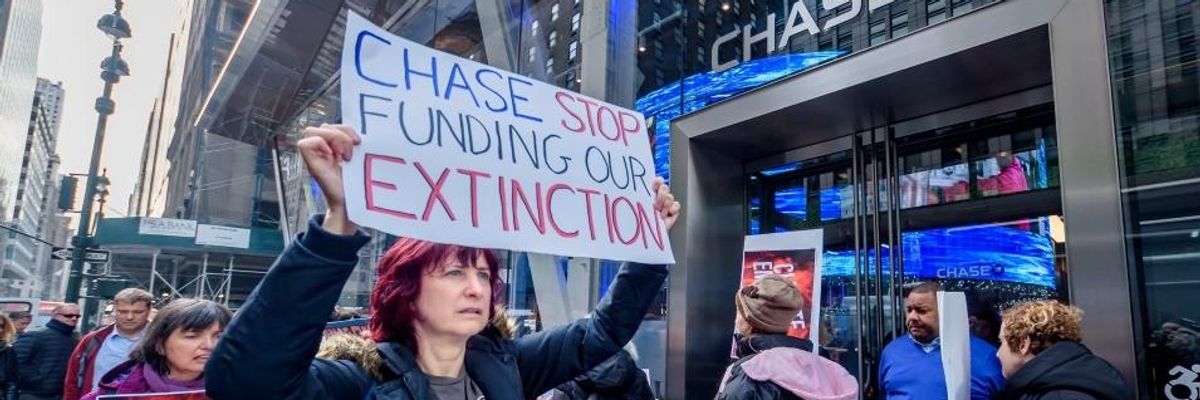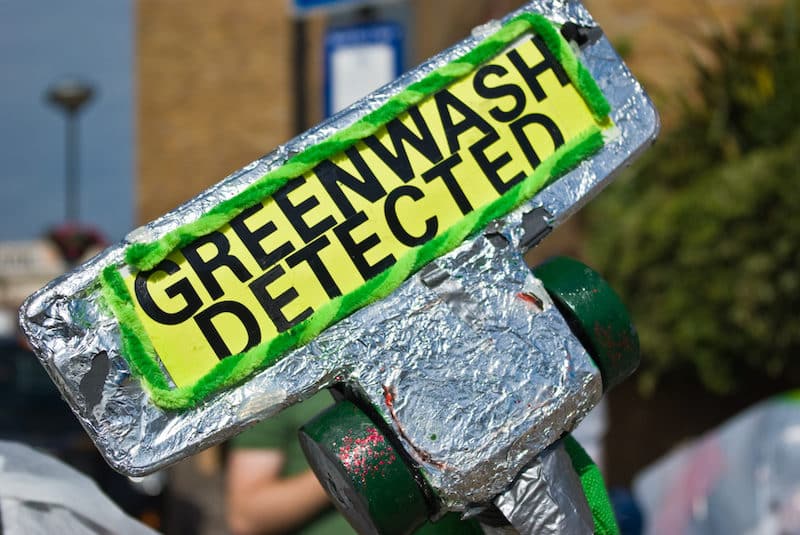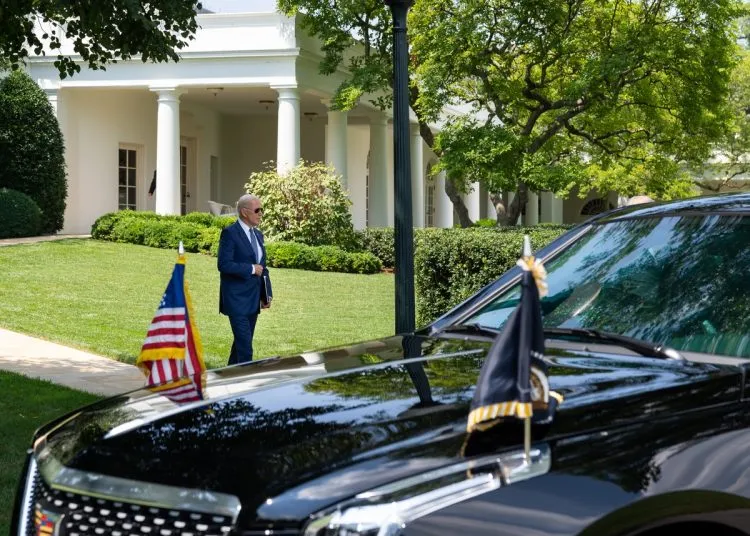‘Criminal’: Major Banks Funneled $1.8 Trillion to Carbon Bombs Between 2016 and 2022
Original article by OLIVIA ROSANE republished from Common Dreams under Creative Commons (CC BY-NC-ND 3.0).

JPMorgan Chase led the pack with more than $141 billion invested between 2016 and 2022, followed by Citi with $119 billion, and Bank of America with $92 billion.
Major banks funneled more than $150 billion in 2022 toward “carbon bomb” fossil fuel projects that would blow through the world’s chances of limiting global heating to 1.5°C above pre-industrial levels.
The data, published by The Guardian Tuesday, shows that major banks in the U.S., Europe, and China funded the companies behind these projects with a total of $1.8 trillion between 2016 and 2022, with U.S. banks contributing more than half a trillion of that total.
“Criminal,” Nuclear Consulting Group chair Paul Dorfman tweeted in response to the news.
“We need to rapidly decline our production of fossil fuels and support for fossil fuels, whether that’s regulatory or financial.”
The “carbon bombs” are 425 fossil fuel extraction projects identified by The Guardian and other nonprofit and media organizations and compiled in an online database in 2022. Each bomb has the potential to release more than a gigaton of carbon dioxide over its lifetime. At first, it was calculated that igniting all 425 bombs would release emissions more than double the remaining carbon budget that scientists say humans can spend and still have a 50% chance of limiting warming to 1.5°C. However, research published Monday calculated that the remaining carbon budget is actually around 250 gigatons of carbon dioxide, not the 500 previously believed. The carbon bombs would release a combined total of more than 1,000 gigatons, or four times the revised number.
“The budget is so small, and the urgency of meaningful action for limiting warming is so high, [that] the message from [the carbon budget] is dire,” study co-author Joeri Rogelj of Imperial College London told The Guardian Monday.
That narrowing window makes it all the more urgent that banks stop financing fossil fuels, yet that is not what they are doing, according to the analysis of the carbon bomb data completed by French nonprofits Data for Good and Éclaircies, along with European media partners.
The data includes a list of the top ten financial backers of companies operating carbon bombs.
JPMorgan Chase led the pack with more than $141 billion invested between 2016 and 2022, followed by Citi with $119 billion, Bank of America with $92 billion, the Chinese ICBC with $92.2 billion, and BNP Paribas with $71.9 billion. Last year alone, the banks directly or indirectly funded the projects with around $161 billion. This comes despite greenwashing rhetoric from financial institutions pledging to act on climate.
For example, JPMorgan has promised to set goals to reduce the emission intensity of its portfolios for key sectors, including oil and gas, electricity, and auto making.
“We provide financing all across the energy sector: supporting energy security, helping clients accelerate their low-carbon transitions, and increasing clean energy financing with a target of $1 trillion for green initiatives by 2030,” a JPMorgan Chase spokesperson told The Guardian. “We are taking pragmatic steps to meet our 2030 emission intensity reduction targets in the six sectors that account for the majority of global emissions, while helping the world meet its energy needs securely and affordably.”
The data suggests these institutions need to do more and faster.
“We need to rapidly decline our production of fossil fuels and support for fossil fuels, whether that’s regulatory or financial,” Shruti Shukla, a National Resources Defense Council energy campaigner who was not involved with the research, told The Guardian.
In a worse-case scenario, nothing will be done to limit emissions, these carbon bombs will be exploited and burned, and weather will turn ever more extreme. However, if world leaders do succeed in rapidly phasing out fossil fuels, these projects could become stranded assets for the companies and banks that invested in them, and if this happens all at once, it could trigger a financial crash, University of Witten-Herdecke sustainable finance research fellow Jan Fichtner told The Guardian.
To avoid this, the world must work to make fossil fuels less profitable, Fichtner said.
“In a capitalist system, profitability is the most important current,” Fichtner told The Guardian. “You can try to swim against the current, it’s possible, but it’s very, very difficult.”
Original article by OLIVIA ROSANE republished from Common Dreams under Creative Commons (CC BY-NC-ND 3.0).


